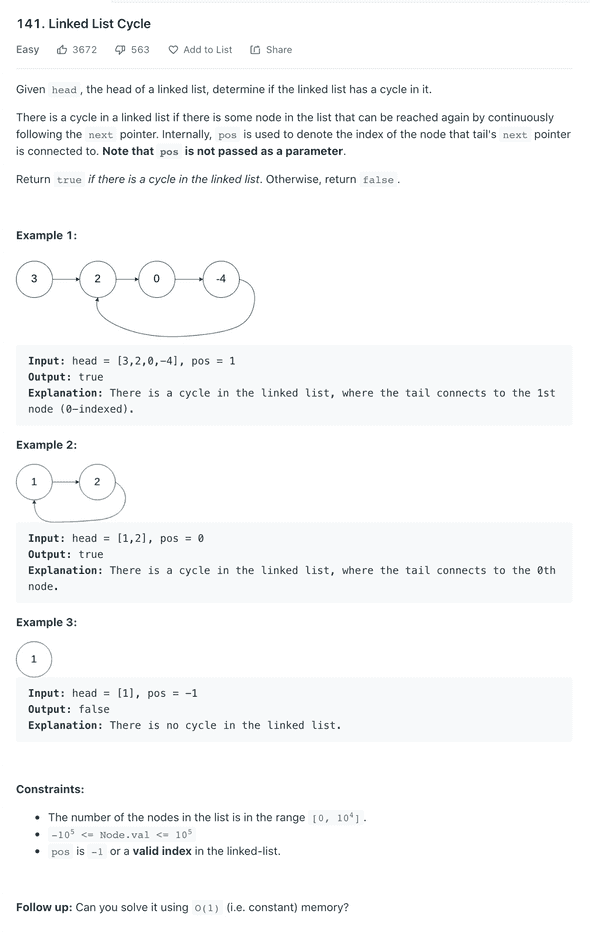Leetcode 141 Linked List Cycle
January 24, 2021
Welcome back, part of my Self Development Goals for 2021 is “Complete at least 25 - 50 Leetcode Questions”, today we are going to discuss and solve Leetcode Linked List Cycle
Problem
Solution
There are two mains ways to approach this, one using extra space O(n) and a better solution using constant space O(1). We could use a hashmap to store each value then has we go through each node check if its already in the hashmap if it is it contains a cycle. This uses extra space so can we do better? Yes we can we can use two pointers!, if you have followed this leetcode series so far we know we have seen this two pointer technique before so lets discuss it.
We will use a fast and a slow pointer, slow will start at head, fast will start one ahead of slow, for every step the slow pointer takes, fast will take two, if there is a cycle eventually the fast pointer will pass the slow pointer if there is a cycle (as its moving two times faster). If at any point fast becomes null we know we do not have a cycle in our linked list and we can return false.
# Definition for singly-linked list.
# class ListNode:
# def __init__(self, x):
# self.val = x
# self.next = None
class Solution:
def hasCycle(self, head: ListNode) -> bool:
"""
:type head: ListNode
:rtype: bool
O(N + K) (full length + time to catchup with slow) = O(N)
O(1) space since we are using pointers
Alternative O(n) space is to add each node(memory add) to hashmap, if it we have seen that node before return true, if we get to end of list return false.
"""
if head is None:
return False
slow = head
fast = head.next
# While they are not overlapping
while slow != fast:
# Fast or fast.next could be null in a list without a cycle
if fast == None or fast.next == None:
return False
slow = slow.next
fast = fast.next.next
# The pointers have overlapped return True there is a cycle
return True
Time / Space Complexity
Time: O(N + K) (full length + time to catchup with slow) = O(N)
Why: At worst we need go through each element of the linked list (until we get to a None/Null pointer).
Space: O(1)
Why: Since we are using only two pointers and not storing the values of a linked list in anything else our space is a constant O(1).
Conclusion
I hope you enjoyed this second post on solving some Leetcode problems, Anyway, that is 6 / 25 for my yearly goal done! now onto the rest, i hope you enjoyed this post!
Until next time
Jason
